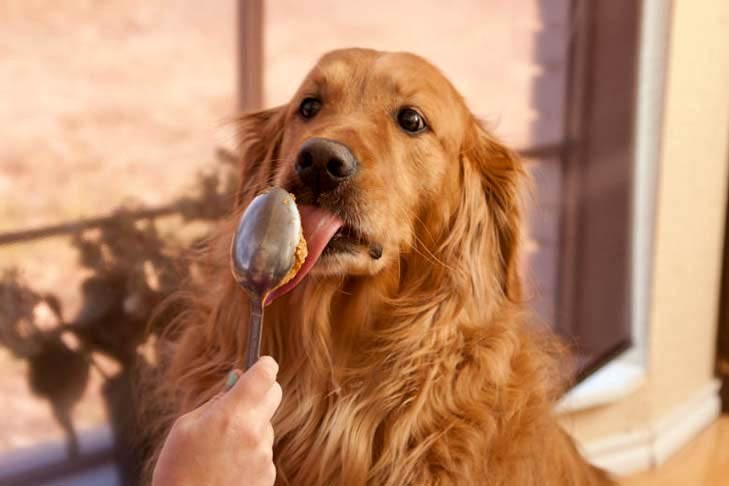Sharing your life with a dog means sharing your heart and home. As loving dog owners, it’s natural to wonder if we can share our favorite foods with our canine companions. However, it’s crucial to understand that not all human foods are safe for dogs. Some can be beneficial, while others can pose serious health risks. This guide will help you navigate the world of human food for dogs, outlining What Foods Can Dogs Eat And Not Eat to ensure your furry friend stays healthy and happy.
Safe Human Foods for Dogs
Here’s a breakdown of common human foods that are generally safe for dogs in moderation:
-
Bread: Plain bread, without spices or raisins, is safe in small amounts. It offers little nutritional value and can contribute to weight gain. Homemade bread is preferable to store-bought options due to fewer preservatives.
-
Cashews: A few unsalted cashews can be a healthy treat, providing calcium, magnesium, and antioxidants. However, excessive consumption can lead to weight gain due to their fat content.
-
Cheese: In small to moderate quantities, cheese can be a tasty treat for dogs, provided they aren’t lactose intolerant. Opt for lower-fat varieties like cottage cheese or mozzarella.
-
Coconut: Coconut, including coconut milk and coconut oil, contains lauric acid, which can combat bacteria and viruses. It may also help with bad breath and skin conditions. Avoid giving your dog the furry outer shell.
-
Corn: Corn is a common ingredient in dog food. Ensure it’s off the cob, as the cob can cause intestinal blockage.
-
Eggs: Fully cooked eggs are a great source of protein and can aid an upset stomach. Avoid raw egg whites, as they can contribute to biotin deficiency.
-
Fish: Fish is packed with beneficial fats and amino acids. Salmon and sardines are particularly good choices. Ensure all tiny bones are removed (except in sardines) and only offer fully cooked, cooled fish. Limit fish intake to twice a week.
-
Ham: Ham is safe in small pieces, but its high sodium and fat content make it unsuitable as a regular treat.
-
Honey: Honey contains numerous nutrients and can help with allergies by introducing small amounts of pollen to a dog’s system. It can also be used topically for minor burns and cuts.
-
Peanut Butter: A good source of protein, peanut butter should be raw, unsalted, and free of xylitol (a toxic sugar substitute).
-
Peanuts: Unsalted peanuts are safe in moderation, providing healthy fats and proteins. Avoid salted peanuts due to their high salt content.
-
Popcorn: Air-popped, unsalted, and unbuttered popcorn is a safe treat. It contains riboflavin and thiamine, beneficial for eye health and digestion. Ensure all kernels are fully popped to prevent choking.
-
Pork: Pork is a digestible protein source, rich in amino acids and calories. It may be less likely to cause allergic reactions compared to other proteins.
-
Quinoa: Quinoa is a healthy alternative to corn, wheat, and soy, often found in high-quality dog foods.
-
Salmon: Fully cooked salmon is an excellent source of protein, good fats, and amino acids, promoting joint and brain health and boosting the immune system.
-
Shrimp: Cooked and shelled shrimp is a good source of antioxidants, vitamin B-12, and phosphorus, and is low in fat, calories, and carbohydrates.
-
Tuna: Cooked, fresh tuna offers omega-3 fatty acids, benefiting heart and eye health. Canned tuna (in water, no oil, no spices) is safe in small amounts.
-
Turkey: Plain, cooked turkey (no skin, bones, or excessive salt/seasoning) is a safe and lean protein source.
-
Wheat/Grains: Grains like wheat and corn provide protein, essential fatty acids, and fiber. Grain allergies are possible, so consult your veterinarian.
-
Yogurt: Plain yogurt contains probiotics that can aid digestion. Choose plain varieties without added sugar or artificial sweeteners. Be mindful of potential lactose intolerance.
 Golden Retriever enjoying peanut butter
Golden Retriever enjoying peanut butter
Dangerous Human Foods for Dogs
Certain human foods are toxic or otherwise harmful to dogs and should be strictly avoided:
-
Almonds: While not toxic, almonds can be difficult for dogs to chew and digest, potentially causing esophageal blockages or windpipe damage. Salted almonds are especially dangerous due to increased water retention.
-
Chocolate: Chocolate contains methylxanthines, which are toxic stimulants that can disrupt a dog’s metabolism. Even small amounts, particularly dark chocolate, can cause diarrhea and vomiting. Larger quantities can lead to seizures, irregular heart function, and death.
-
Cinnamon: Cinnamon can irritate a dog’s mouth and lower blood sugar levels. Inhaling cinnamon powder can cause breathing difficulties, coughing, and choking.
-
Garlic: Like onions, garlic is part of the Allium family and is highly toxic to dogs, causing anemia. Symptoms may be delayed, so monitor your dog for several days if you suspect they have ingested garlic.
-
Ice Cream: Ice cream’s high sugar content and potential for lactose intolerance make it an unsuitable treat for dogs.
-
Macadamia Nuts: Macadamia nuts are highly poisonous to dogs, causing vomiting, increased body temperature, inability to walk, and lethargy. They can also affect the nervous system.
Other Considerations
- Moderation is Key: Even safe foods should be given in moderation to avoid weight gain and other health problems.
- Quality Dog Food First: Always prioritize a high-quality dog food as your dog’s primary source of nutrition.
- Consult Your Veterinarian: If you have concerns about your dog’s diet or suspect they have ingested a toxic substance, contact your veterinarian or a pet poison helpline immediately.
Knowing what foods can dogs eat and not eat empowers you to make informed decisions about your dog’s diet, ensuring their safety and well-being. Always prioritize their health and consult with your veterinarian for personalized dietary advice.
